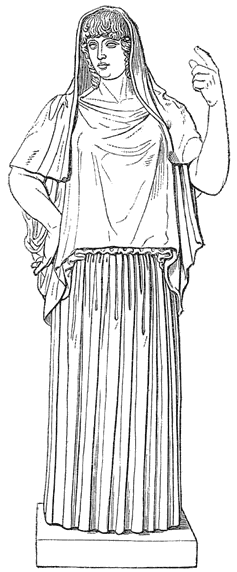Uranasi alikuwa mungu Mgiriki wa mbingu. Mwenzi wake wa Kirumi alikuwa Caelus. Katika fasihi ya Ugiriki Mkongwe, Uranasi au Baba Mbingu alikuwa mwana na mume wa Gaya, Mama Dunia. Kulingana na Theogonia ya Hesiodi, Uranasi alizaliwa na Gaya tu bila baba, lakini vyanzo vingine visema kuwa Etha alikuwa baba yake. Uranasi na Gaya walikuwa wazazi wa kizazi cha kwanza cha Titani, na wahenga wa miungu Wagiriki. Uranasi huwa hatokei kwenye vyombo vya udongo vilivyopakwa rangi vya Kigiriki.
Uranus was the Greek god of the sky. His Roman counterpart was Caelus. In Ancient Greek literature, Uranus or Father Sky was the son and husband of Gaea, Mother Earth. According to Hesiod's Theogony, Uranus was born to Gaea alone without a father, but other sources say that Æther was his father. Uranus and Gaea were the parents of the first generation of Titans, and the ancestors of the Greek gods. Uranus does not usually appear on Greek painted pottery.












